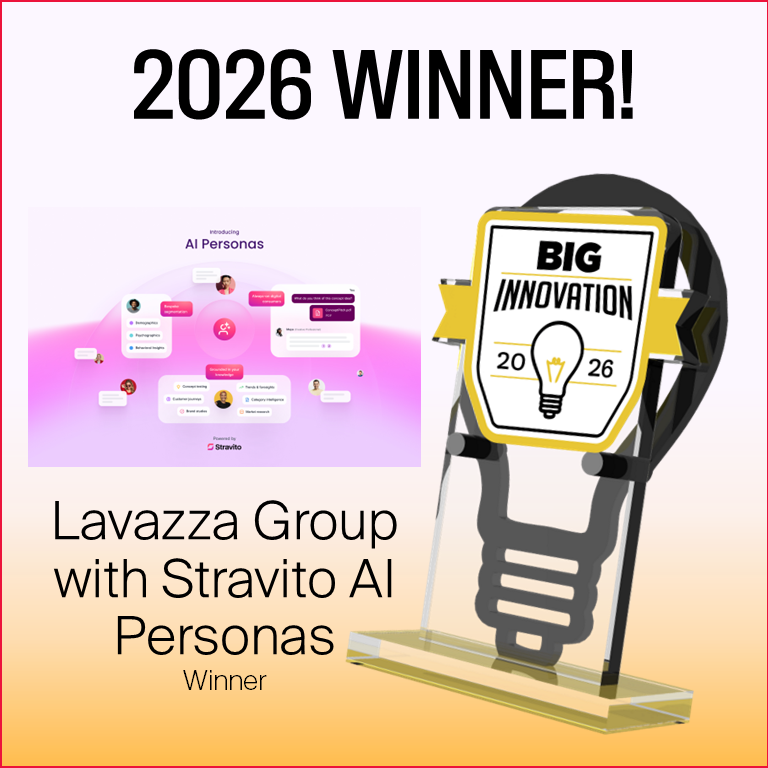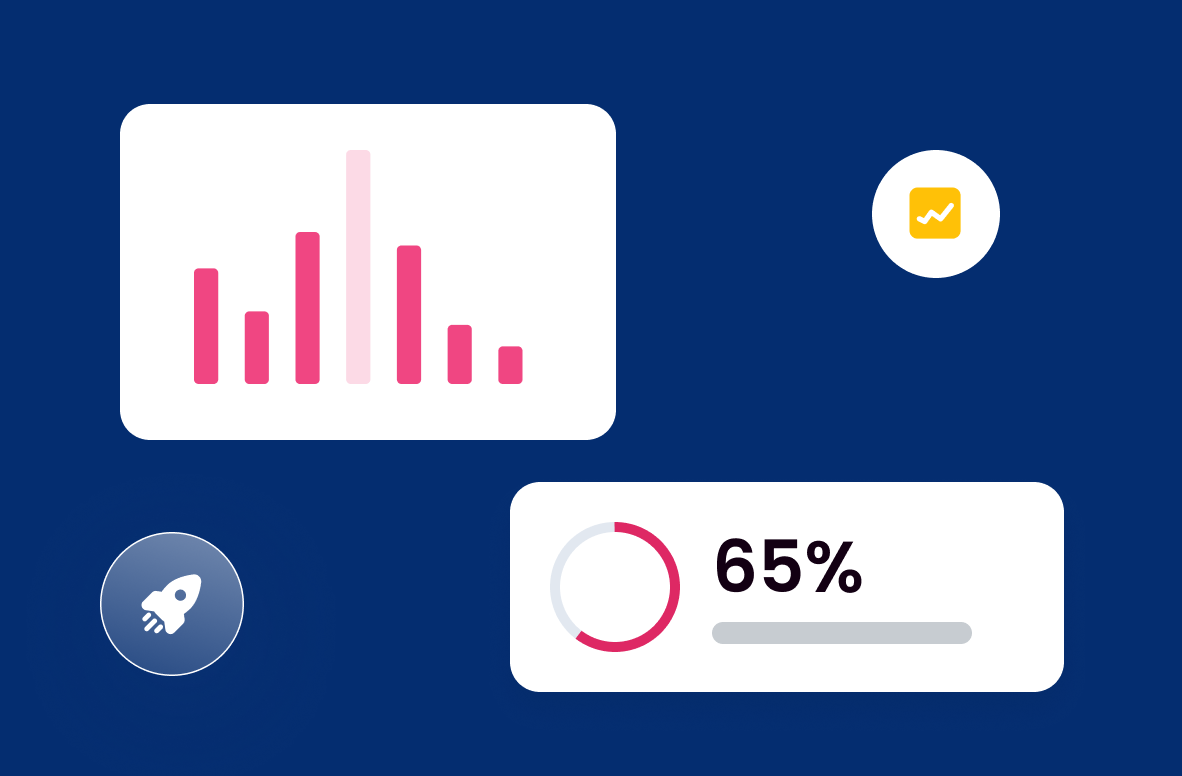Imagine that you’re part of a team working on a video ethnography exercise. Two years ago, researchers gathered some great data on how customers used and felt about your company’s product. Now, your team needs to get a fresh perspective on that work to identify how customer behaviors have evolved.
But there are a few problems. The original researchers have all moved on to different companies. No one can remember what platform they used for the study. And you can't find anything like a protocol, prompts, a screener, or a discussion guide.
So, your team is stuck. You’ve lost all context behind the original insights. There’s no way to confidently build on the previous work or even rely on the veracity of the original material. Instead of being able to use the existing work as a jumping-off point, your team will need to start from scratch.
Keeping hold of important information isn’t always an easy task. In everyday life, it’s usually no big deal when some pertinent detail gets lost. But when the loss of critical information gets scaled up to the size of a company, then it becomes a real problem.
It takes years for companies to accumulate knowledge. Employees’ expertise and experience shape operations and procedures. Policies and processes are developed. Cultural values form.
This collective knowledge is known as organizational memory. And it’s a major asset for a business.
Preserving organizational memory keeps vital knowledge and important insights within the company. Unfortunately, as a company grows and expands, its organizational memory can erode.
Have you ever found it difficult to figure out how an ex-colleague completed a task? Ever lose track of an important file? Find that nobody can remember the name of the agency that referred you to a big client two years ago? Has a reorganization completely turned your department upside down?
This is corporate amnesia. And it happens when organizational memories aren’t protected.
The good news is that you can act to safeguard organizational memory. Effective knowledge management strategies and the right technology can protect hard-won insights.
Let’s go back to the video ethnography example at the start. What if someone had had the presence of mind to archive all the raw footage and files from the original research? Then your team would have been able to quickly gain valuable insights on past and present customer behaviors instead of starting from zero. All the effort that went into the original work wasn’t wasted.
That’s why preserving organizational memory is so important. It protects valuable insights and ensures they stay accessible despite organizational changes.
In this article, we take a deep dive into the challenges of preserving organizational memory. Keep reading to learn just why protecting insights is challenging for big companies and what you can do about it.
The complexity of preserving organizational memory at scale
Organizational memory matters. Progress is only possible if you can build on past accomplishments and avoid repeating past mistakes. This is why protecting your corporate knowledge is so important to achieving lasting success.
A repository of institutional knowledge lets employees easily access insights and information. Being able to draw from a deep well of past experiences and historical data helps drive innovation and enables better decision-making.
Processes can be made more efficient since employees can find proven solutions. Departments can get back up and running faster after major reorganizations because operational data isn’t lost. Because ex-employees don’t take their knowledge with them, onboarding new hires becomes faster and easier.
Safeguarding organizational memory also ensures that the company’s values are passed down. Preserving past achievements and milestones helps motivate employees and reinforces a culture of pride and purpose.
This all helps to ramp up productivity levels. Which in turn stimulates growth. But as a company grows, the complexity of managing its institutional knowledge increases.
Success often involves expansion, mergers, acquisitions, and reorganization. The downside is that change weakens organizational memory. Major changes have been shown to dramatically weaken organizational memory.
Fast growth also often results in high employee turnover and a corresponding loss of institutional knowledge. When an employee leaves, their explicit knowledge and tacit insights frequently leave with them. Getting new hires up to speed has a steep cost. It can take up to two years and cost 213% of a new hire’s salary to get them to the level of their predecessor.
Research from KPMG showed that 96% of companies worldwide are in a transformational stage. Almost 50% of companies reported having completed at least one major change initiative in the past 24 months.
Constant restructuring increases the risk of losing organizational knowledge. Reorganizing teams, merging departments, and changing roles and responsibilities disrupt the flow of tacit knowledge throughout a company. Restructuring can often mean having to take on new projects, learn new processes, or come to grips with new tools.
To transfer knowledge effectively, you need a solid base of documented information. Otherwise, staff won’t know where to find project files, procedures, and manuals. They might not even know they exist in the first place.
While unavoidable, change comes at a cost. Institutional knowledge loss caused by rapid change costs Fortune 500 companies US$31.5 billion per year.
For companies, getting bigger leads to bigger problems. As a company grows, it takes on extra departments, hires more employees, adds services or products, and expands into different territories. Many large organizations decentralize to manage this complexity. Decentralization gives the different branches of a company the autonomy to make decisions without referring to a central authority.
While decentralization improves decision-making on a local level, it also leads to fragmented systems and siloed knowledge. It also increases the likelihood of inconsistent outputs and duplicated work.
Here’s an example: A company has offices in London, Sydney, and Shanghai. These teams operate according to local trends and customer needs. Which makes sense. What works in the UK might not work in China, or even in Australia. So, leadership gives each team a level of authority to go their own way.
Unfortunately, this autonomy closes off the teams from each other. So, they don’t communicate. They all wind up using different project management tools. The marketing campaigns in the UK and Australia look almost identical. The Chinese campaign, however, has completely different messaging.
While all teams are working hard, the lack of a centralized knowledge pool undermines productivity. With access to a knowledge hub, the UK and Australian teams wouldn’t have reinvented the wheel, and China would have been able to stay on message.
When companies expand, teams become more specialized to support new areas of expansion. Sophisticated coordination mechanisms are required to support this increased specialization and diversity. Teams need to know who is doing what, how they’re doing it, and when they’re doing it. Without the right coordination mechanisms, knowledge gets siloed and valuable lessons get lost.
What can be done to avoid these kinds of outcomes? You can minimize the risks of organizational memory loss by identifying the key contributing factors.
Key factors that cause memory loss in large organizations
Companies with a strong organizational memory and efficient knowledge management systems are more agile, productive, and resilient. Despite this, only 24% of companies are able to derive sustained value from their organizational knowledge.
Why is this the case? Generally speaking, four factors make it difficult for large companies from being able to hold on to organizational knowledge:
- Ineffective approaches to handling change
One reason is that many business leaders are unaware of how growth and change can impact organizational memory. Effectively managing change reduces the risks to organizational memory. Unfortunately, 70% of initiatives to manage change are unsuccessful. It’s no wonder that less than 50% of executives believe that transformation delivers value. - Outdated or overly complex technology tools
Another factor is how well a company manages its digital ecosystem. Expanding organizations often accumulate tech stacks composed of incompatible platforms and legacy systems. This fragmentation creates knowledge silos. Information remains trapped within specific departments. Outdated systems block access to insights. - Information overload
Just having the right tools isn’t enough. Even with a fully integrated knowledge management system, organizational memory can still be at risk. It’s important to provide easy access to insights. It’s also vital to manage the flow of that information. 38% of employees stated that information overload caused excessive amounts of stress and decreased productivity. Employees who are overwhelmed with information find it more difficult to locate essential data and make informed decisions. - Difficulties in managing remote employees
Large organizations have operations that encompass the globe. Retaining and transferring knowledge across a diverse remote workforce is challenging. Cultural differences can cause communication barriers and impede knowledge-sharing.
The solution? Make safeguarding insights a priority
As a business leader, protecting organizational memory should be a top priority. To do so, you’ll need to combine effective knowledge management strategies with proven technological solutions.
Scalable strategies to preserve organizational memory
You can increase your company’s competitiveness by taking decisive steps to protect its institutional knowledge. Firstly, you should educate your people on how valuable organizational memory is. This means creating a company culture that values knowledge sharing.
A strong knowledge-sharing culture is one of the top three reasons why companies succeed. If your employees are motivated to share insights and collaborate, institutional knowledge becomes more accessible and is less likely to be lost.
Encourage your employees to be open and honest about sharing knowledge and insights. Make sure there are open channels of communication between teams and between employees and management. Statements about the importance of knowledge sharing demonstrate integrity and build trust. Incorporate such statements into your company values, the company mission, and the onboarding process. This will help your employees to know that their ideas can be shared without fear of judgment, ridicule, or negative repercussions.
Preserving organizational memory can also help to enhance employee engagement. You can inspire employees to share their expertise with reward and recognition programs. Cross-departmental training can break knowledge silos and improve communication and collaboration. Workshops and office events are great ways to encourage formal and informal knowledge sharing.
Recognizing the value of institutional knowledge is a great foundation, but it’s not enough to protect organizational memory. You’ll need to develop robust documentation and standardization processes to preserve critical insights.
Clear documentation and standardized procedures systematically capture vital knowledge. This greatly reduces the risk of memory loss when employees change roles or leave your company. Standardized knowledge management processes maintain continuity, enhance job satisfaction, and enable better decision making.
At this stage, you will have a business environment where sharing insights and ideas is valued and encouraged. You’ll also have processes to collect and store that knowledge. The only missing piece of the puzzle is a place to store your organizational memory. For that, you’ll require a reliable knowledge management platform.
Implementing and maintaining a scalable, user-friendly, centralized knowledge management platform is the best way to prevent organizational memory loss. Get the right platform and you can improve employee productivity by up to 25%.
A knowledge management platform lets you collect knowledge and insights methodically and build up organizational memory. But ongoing vigilance is needed. It’s essential to maintain the accuracy and integrity of that data.
Knowledge repositories require continuous auditing and ongoing refinement. Without regular updates, your knowledge bases can become outdated and disorganized. This leads to confusion, inefficiencies, and poor decision-making. Put in place processes to ensure your knowledge base is well-organized and contains the most current and relevant information available.
The bottom line? Choosing the right knowledge management platform is crucial to preventing organizational memory loss. Get the perfect fit, and you’ll be able to keep your competitive edge no matter how big your company grows.
Leveraging technology for scalable memory preservation
Want to leverage organizational memory to promote consistent growth and withstand change? Provide your employees with a dedicated knowledge management platform. An easily accessible repository of interdisciplinary expertise, policies, and processes will boost productivity, improve agility, and support change management.
A knowledge management platform that is purposefully designed for scalability can effectively centralize, secure, and activate organizational knowledge. To make sure their insights are protected, some of the world’s biggest corporations choose to work with Stravito.
Major companies from a wide range of sectors have trusted Stravito with their organizational memory. The multinational pharmaceutical company Roche chose to work with Stravito to solve issues with insight inflation. Global energy giant Shell was able to consolidate its massive repositories of knowledge using the Stravito platform. Stravito provided Delta Air Lines, the oldest airline in the US, with a way to effectively share research and insights across its entire enterprise. The world-famous brewer HEINEKEN developed an insights ecosystem powered by Stravito.
Just like these titans of the business world, you can harness the power of the Stravito knowledge management platform for your company.
Give your employees a reliable single source of truth with Stravito Workspaces. Your teams will be able to quickly locate and access key insights and important data with state-of-the-art AI search technology.
Minimize downtime and ensure continuous business operations with Stravito. The Stravito platform can be rapidly rolled out. The intuitive interface eliminates the need for extensive training. You can integrate Stravito’s innovative platform seamlessly with various data sources. Get up-to-the-second insights from market research, internal reports, and external data feeds.
Be confident that your hard-won organizational knowledge is secure. Built using modern, cloud-based infrastructure, Stravito supports automation across deployment, configuration, release cycles, and security protocols.
Grow, expand, and reach your full potential without any loss of organizational memory. The Stravito database can easily handle large, continuously expanding data sets. This flexibility lets you dynamically scale the Stravito knowledge management platform to match changing operational needs.
Preventing the loss of organizational memory is essential for your ongoing success. Stravito gives you scalable solutions to safeguard corporate insights.
Future-proofing organizations through scalable knowledge retention
Organizational memory is a highly valuable asset. It takes years to collect and retain insights gained from the collective knowledge of your employees. However, as your company expands, that critical knowledge is put at risk.
A well-preserved and easily accessible repository of institutional knowledge enables companies to avoid disruptions caused by employee turnover, shifting market conditions, or operational changes.
Only by implementing a scalable platform can your organization be sure that its accumulated knowledge will grow and evolve along with it.
Customizable knowledge management solutions can streamline the capture and dissemination of critical information and encourage cross-departmental collaboration and innovation. Over time, this leads to improved agility, reduced operational risk, and a stronger competitive edge.
Responsible business leaders take action to protect their company’s accumulated insights. Stravito is a powerful, scalable, and fully customizable solution that can safeguard knowledge and preserve organizational memory. We can assess your organizational needs and develop advanced memory preservation strategies.
If safeguarding knowledge is a priority for your company, Stravito can help. Avoid organizational memory loss and sharpen your competitive edge. Explore Stravito’s knowledge management solutions.
***
The bottom line: You can protect organizational memory at scale
The larger your company gets, the greater the risk that hard-earned knowledge will be lost. Organizational memory encompasses everything from employee expertise to cultural values. Being able to access organizational memory drives innovation, enables agility, and promotes long-term success.
Unfortunately, rapid change, employee turnover, fragmented tech stacks, and poor knowledge-sharing habits can erode organizational memory.
There are 5 steps you can take to preserve organizational memory:
- Foster a knowledge-sharing culture by embedding it into your company values and communications.
- Encourage cross-departmental collaboration with training, events, and incentive programs.
- Standardize documentation processes to systematically capture critical insights.
- Implement a scalable knowledge management platform that centralizes access and integrates across teams.
- Maintain and audit your knowledge base to keep it current, relevant, and easy to use.
Stravito is a purpose-built platform that allows global enterprises to secure institutional knowledge at scale. You can protect your organizational memory during periods of rapid growth or transformation and ensure your business stays resilient and competitive.




